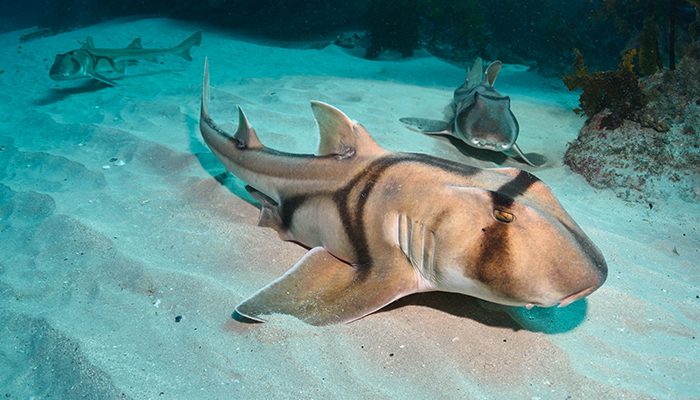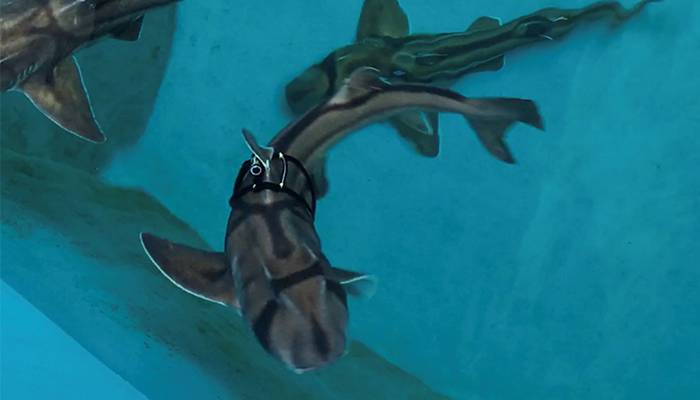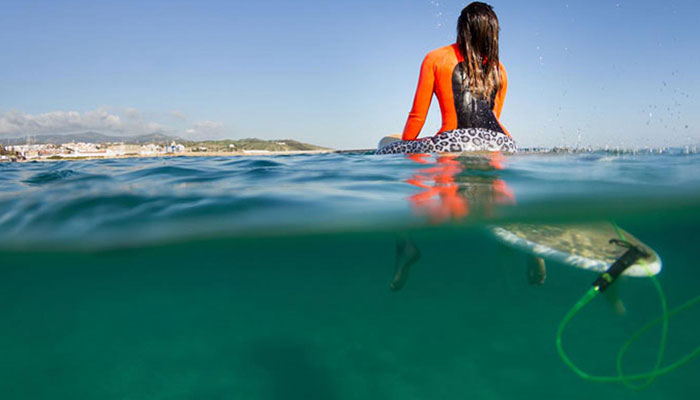Sharks aren’t the mindless killing machines that scared the pants off everyone in the infamous 1970’s Jaws movies, according to marine biologist Professor Culum Brown, who heads up the Fish Lab at Macquarie University.
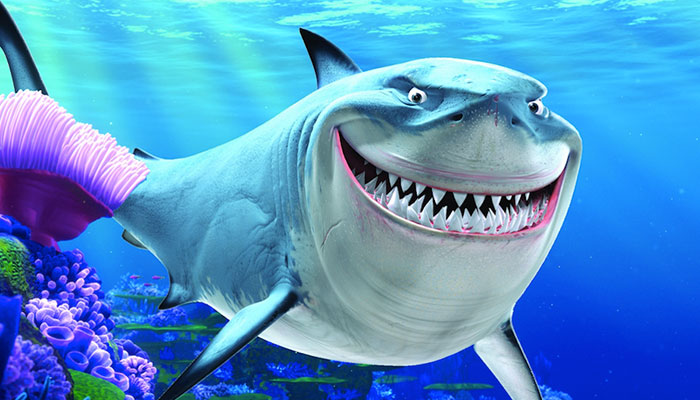
Friends not food: Sharks can be misunderstood by humans, says Professor Culum Brown. Image credit: Pixar movie Finding Nemo.
“Sharks are very smart, they learn quickly, they have feelings – and some even pair up with a ‘best buddy’ on their travels,” he says.
If you’re looking for a movie star analogy, then Bruce the friendly Great White shark from Pixar’s Finding Nemo movie is more apt – plenty of personality and a whole lot of individual quirkiness.
Brown joins two other leading Australian shark ecologists, Macquarie’s Dr Catarina Villa-Pouca and Associate Professor Charlie Huveneers, to talk about Sharks, Humans and Jazz at an inspiring event on April 4 at the Australian National Museum in Darling Harbour.
The three experts will explore the big questions, such as: Do shark repellents work? What kind of music do sharks like? (spoiler: it’s not the Jaws theme!) and where do sharks go on vacation?
We need a good understanding of shark behaviour, about where they go and why, so we can minimise human-shark interactions
Understanding how humans and sharks interact is the key to reducing danger – and Brown is quick to note that sharks have way more to fear from humans than we do from sharks.
“Although on average only one person dies every year across the whole of Australia from shark bites, the issue of human-shark interactions has long been a political hot potato,” he says.
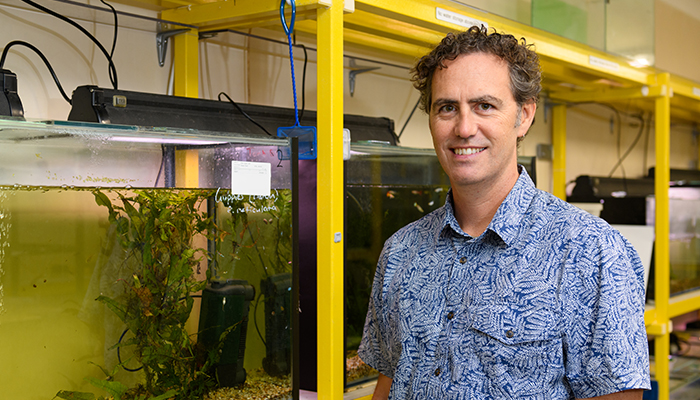
Making waves: Brown has studied the behaviour of Port Jackson sharks through acoustic tagging.
Three-quarters of the world’s shark species are endangered – and the three big threats to sharks are swimmer protection programs, overfishing and habitat degradation.
“Shark management attracts a disproportionate amount of funding considering the actual risk,” he says.
Hot spot for sharks
Australia is a global hot-spot for sharks and rays, with around 25 per cent of all species represented here – so it’s a great place to study them, Brown says.
“We need a good understanding of shark behaviour, about where they go and why, so we can minimise human-shark interactions and establish protected areas for effective conservation management,” he explains.
- Bright idea: Lights under boards may hide surfers from sharks
- Let's get that bread: How teenagers change language
Studying sharks is not easy. They are constantly on the move and cover vast distances but during the talk, Brown will reveal some of his findings from acoustic tagging of Port Jackson sharks.
“Acoustic tracking at the appropriate scale can not only inform us about their movement and migration patterns but also tell us about their social lives – who hangs out with who, where and for how long,” he says.
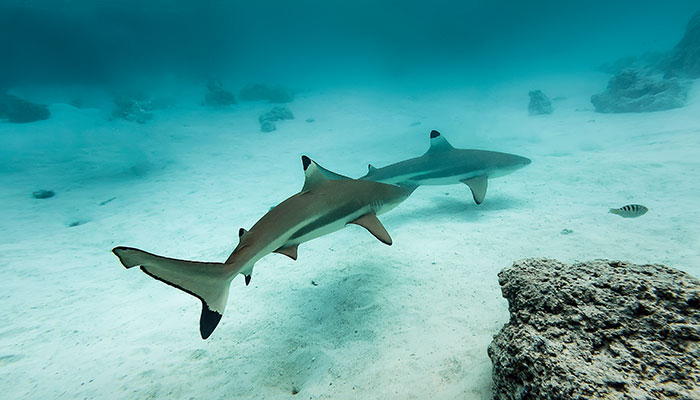
“Port Jackson sharks, for example, have best buddies, use the East Australian Current to reduce energy expenditure and speed up their southerly migration and return to the same location to breed year after year.”
Dr Catarina Villa-Pouca will talk about her research into shark intelligence. She has shown that sharks can be trained to associate artificial sounds (music) with the arrival of food which has real implications for tourism activities like cage diving.
And Associate Professor Charlie Huveneers, now at Flinders Uni after completing his PhD at Macquarie, will talk about preventing shark bites and reveal what he has uncovered while developing and testing shark deterrents.
Find out more about Professor Brown's shark talk
The Sharks, Humans and Jazz event is part of the Ocean Talks series hosted by the Maritime Museum in partnership with the Sydney Institute of Marine Science. Also on show: the Sharks and Humanity art exhibition: https://www.sea.museum/whats-on/events/sharks-humans

